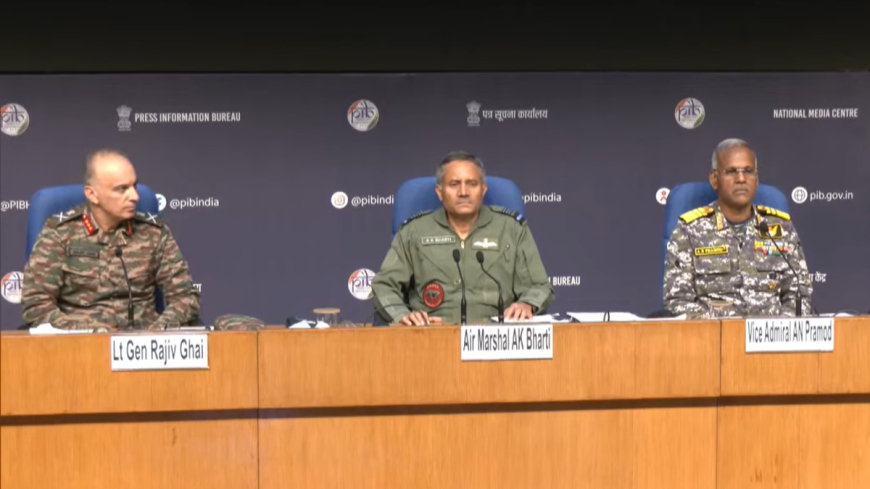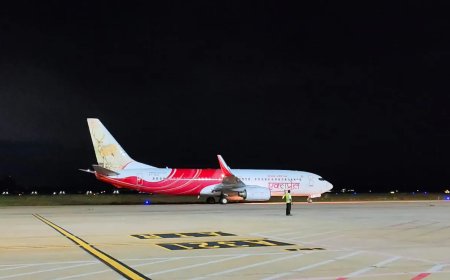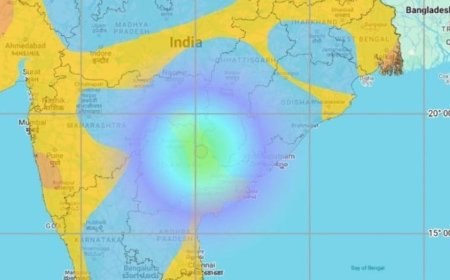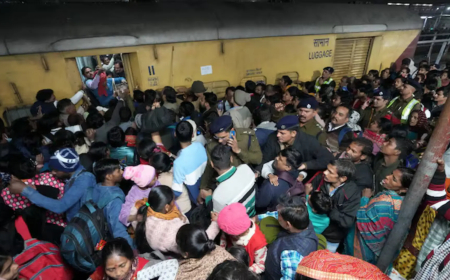LIVE: India-Pakistan Ceasefire Update – Air Marshal AK Bharti Clarifies Our Battle Is Against Terrorists, Not Pakistani Military at DGMO Briefing
In the latest DGMO briefing, Air Marshal AK Bharti emphasized that India’s ongoing operations are directed against terrorists, not the Pakistani military. Read more about the ceasefire situation and its implications here.

Introduction:
In a crucial update during the Director General of Military Operations (DGMO) briefing, Air Marshal AK Bharti made it clear that India’s fight is not against the Pakistani military but against terrorists operating from Pakistan. This statement comes amid ongoing ceasefire concerns and rising tensions along the India-Pakistan border. The Air Marshal’s remarks aim to clarify India’s stance and emphasize its focus on eradicating terrorism from the region.
In this article, we will dive deeper into the key points discussed in the DGMO briefing, the significance of the ceasefire, and what the future holds for India-Pakistan relations.
1. Clarifying the Core Message: India's Fight is Against Terrorism, Not Pakistan’s Military
During the DGMO briefing, Air Marshal AK Bharti pointed out that India’s operations are primarily targeted at terrorist groups operating from Pakistan-administered regions, particularly in areas such as Kashmir. He stressed that the Indian military is not engaged in any direct combat with the Pakistani armed forces, but rather, the primary objective is to eliminate terrorist elements that pose a threat to India’s national security.
This distinction is critical, as it highlights India’s efforts to combat cross-border terrorism rather than engaging in an all-out war with Pakistan. The briefing serves as a clear message to the international community that India is focusing on countering terrorism as part of its strategic defense objectives.
2. The Significance of the India-Pakistan Ceasefire
The India-Pakistan ceasefire, which has been in place since February 2021, continues to be a subject of discussion. The ceasefire agreement was signed between both countries to halt cross-border firing along the Line of Control (LoC) and ensure peace in the disputed regions.
Although the ceasefire has been generally effective, occasional violations from either side have raised concerns about the long-term stability of the peace process. Air Marshal Bharti confirmed that despite the ceasefire, India’s military readiness remains high, with continued vigilance against any potential threats from terrorist activities.
3. The Role of the DGMO in India-Pakistan Ceasefire Management
The DGMO is responsible for overseeing military operations along the India-Pakistan border and ensuring that ceasefire agreements are adhered to by both parties. The DGMO plays a vital role in maintaining communication between the two countries' military establishments, facilitating dialogue on ceasefire violations, and preventing unnecessary escalations.
During the briefing, Air Marshal AK Bharti discussed ongoing efforts to monitor cross-border movements, prevent infiltration, and respond to any violations. He also touched upon the importance of military diplomacy in de-escalating tensions, ensuring that both sides comply with the agreed-upon terms.
4. Pakistan’s Role in Supporting Terrorism: A Key Focus of India’s Defense Strategy
One of the main concerns raised during the DGMO briefing was Pakistan’s alleged support for terrorist organizations that operate across the border. The Indian military has consistently accused Pakistan of providing sanctuary and logistical support to groups such as Jaish-e-Mohammed and Lashkar-e-Taiba, which are responsible for numerous terrorist attacks on Indian soil.
The Indian government has reiterated that terrorist groups based in Pakistan have a significant role in fueling unrest in Kashmir and other conflict-prone areas. According to Air Marshal AK Bharti, India’s defense strategy will continue to prioritize the dismantling of these terror networks, even in the face of the ceasefire agreement.
5. Impact of Terrorism on Civilian Life in Border Areas
The ongoing terrorist activities and the occasional ceasefire violations have placed the lives of civilians living along the India-Pakistan border at significant risk. Air Marshal Bharti acknowledged the hardships faced by these communities and emphasized the need for peace to restore normalcy to these areas.
Despite the challenges, the Indian military remains committed to protecting its citizens and ensuring their safety. Bharti’s remarks highlighted that military operations targeting terrorist elements are carefully planned to minimize civilian casualties and collateral damage.
6. The International Perspective: What the World Thinks About India’s Military Operations
Air Marshal AK Bharti’s statement also drew attention to the international community’s perception of India’s actions along the LoC. India has repeatedly sought global support in addressing cross-border terrorism, urging countries to recognize Pakistan’s role in harboring and funding terrorist organizations.
Bharti explained that international diplomacy plays a vital role in ensuring that Pakistan is held accountable for its actions. He also called for a united front against terrorism, where countries around the world need to support India’s stance on preventing the spread of extremism across borders.
7. Ceasefire Violations and the Military Response: Preparedness Remains Key
Although both countries agreed to a ceasefire in 2021, violations have occasionally occurred, often in the form of cross-border firing or attempted terrorist infiltrations. India’s military response to these violations has been swift and decisive, aiming to protect its sovereignty without escalating the situation into full-scale conflict.
Air Marshal AK Bharti stated that India’s preparedness to defend itself from any threats remains at an all-time high. The Indian military strategy includes deploying troops in key strategic locations, employing cutting-edge surveillance technology, and maintaining high levels of readiness at all times.
8. Future Prospects for the India-Pakistan Ceasefire
Looking ahead, the future of the India-Pakistan ceasefire remains uncertain. While both sides have expressed a willingness to maintain peace, the persistent issue of terrorism and border violations remains a significant challenge.
Air Marshal Bharti emphasized that India will continue to uphold the ceasefire agreement, as long as Pakistan complies with the terms and does not support terrorist activities. However, India’s military will not hesitate to take appropriate action if the situation demands it.
Conclusion:
The DGMO briefing led by Air Marshal AK Bharti sheds light on India’s continued fight against terrorism and the strategic role of the Indian military in maintaining peace along the India-Pakistan border. While the ceasefire agreement holds, the threat of terrorism continues to loom large, and India’s military remains vigilant in defending its citizens and sovereignty.
The Air Marshal’s remarks serve as a reminder that India’s operations are not aimed at engaging the Pakistani military but rather at dismantling terrorist networks that continue to disrupt peace in the region. As both nations navigate the complexities of the ceasefire and border security, the focus remains on ensuring peace while safeguarding national security.
The situation along the LoC is evolving, and the international community will likely keep a close eye on how the India-Pakistan relations unfold in the coming months.
What's Your Reaction?





























































